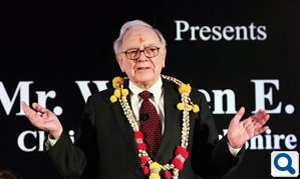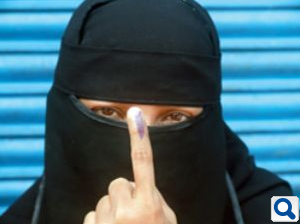Star batsman Yuvraj Singh on Thursday said that he has realised the dream of piloting India to a victory against defending champions Australia in the World Cup though it was very difficult to keep his emotions in check in the high-octane quarter-final match in Ahmedabad.
"Over the last one year I have been dreaming of staying till the end and taking the team to victory against Australia in the World Cup and the moment has come. This is the moment I have lived for as a cricketer," he said at the post-match press conference.
Yuvraj guided India to a sensational five-wicket victory over holders Australia with an unbeaten half century after claiming two wickets and he was adjudged man-of-the-match for the fourth time in the tournament.
He admitted that it was a really tough situation with enormous pressure on him and any small mistake on his part could have thrown India out of the World Cup.
"It was very hard to control emotions. It was difficult to control oneself in such a situation as one mistake and you will be out of the World Cup. I tried to just watch the ball, play down the ground and not lift the ball in the air," said the left-handed batsman.
Yuvraj said he was playing in the tournament with the thought of someone special in his life, though he did not specify the person.
"I am playing for a very special person that comes in my mind and whenever things are not going well I think of that person and things work out," he remarked.
He conceded that the dismissal of Gautam Gambhir, who was run out due to a misunderstanding with him, and captain Mahendra Singh Dhoni in quick succession had put the team under pressure but Suresh Raina lived up to the challenge and showed nerves in crucial stages.
"When Gambhir got out I thought I will get a good partnership going with M. S. (Dhoni) but when MS got out I knew I was in trouble. When Raina came in I told him to take his time and let's get 20-30 run partnership. He has shown nerves in a crucial stage and this will boost his confidence also," he said.
He said he had already apologised to team-mate Gambhir for the mix-up that resulted in his partner getting run out today.
"I have apologies to Gautam for the miscommunication on the field. We have not played together much. I think it was probably my fault," said Yuvraj.
Though he got his fourth man-of-the-match award in the tournament today, Yuvraj sounded modest and said it was a team effort that was crucial.
"I feel good to have contributed to the team but the victory cannot be achieved by one person, it's a team effort," he said.
He said though he cherished the centuries he had scored in his career, even scores like his 52 not out today were special as they resulted to the team winning a crucial tie.
"Though centuries are very special for a player, when you are able to contribute 20 or 30 runs which help the team win crucial matches they also become special," he said.
Looking ahead to the semifinal clash against arch-rivals Pakistan at Mohali on March 30, Yuvraj said it was going to be another dream game after the India-Australia match today.
"The India-Pakistan game is going to be another dream game after India-Australia. It's a great victory for India today. We would be playing our best cricket against Pakistan.
They know our game we know theirs both teams are equal. They have had a very good tournament and have beaten West Indies and Australia," he said.
"We don't want to think about the Pakistan game now. It has been a high-pressure game for us (against Australia) and lot of our system has been drained. We would like to relax for a couple of days and then make plans about Pakistan game," he added.
Looking back the past one year which had seen him being axed from both the ODI and Test teams, Yuvraj said was very happy that things have turned around for him.
"Last year everything I touched turned into mud. This year it has been a good year," he said.
Praising coach Gary Kirsten for the contributions he has been making, Yuvraj said that was the vital difference from 2007 when the team was knocked out in the first round of the World Cup.
"In 2003 team was very great (when it made the final). I don't want to talk about 2007. In 2011 with Gary coming in, our confidence in each other has grown. Players confide in each other and the way Gary keeps the team like a family that shows in our performance," he pointed out.
- With inputs from PTI












